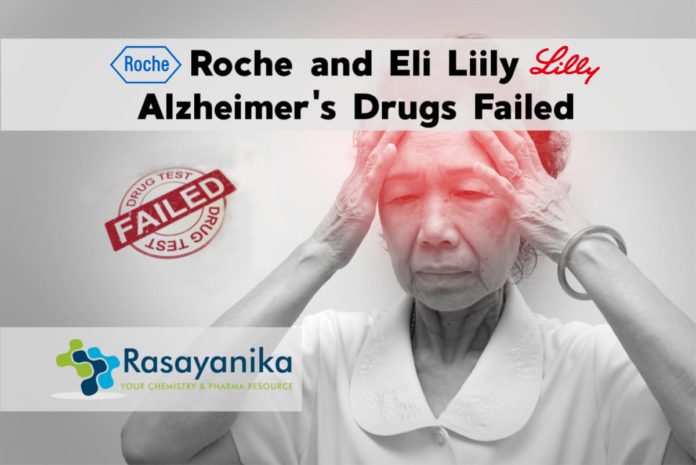The drugmakers Roche and Eli Lilly announced that the experimental drugs in their latest test to halt Alzheimer’s disease have failed.
Drugmakers would inevitably reap billions of dollars for an Alzheimer’s remedy. However, the quest for a remedy for Alzheimer’s disease has been marked by more than 100 failures. Yet, researchers still hope to tame this condition soon. This condition os growing more prevalent as more than 40 million people worldwide and around 4 million people in India are affected by this disease.
Roche’s study on gantenerumab and the study on solanezumab by Eli Lilly spearheaded by Washington University in St. Louis concentrated on rare autosomal dominant Alzheimer’s disease, which is caused by gene mutations that are followed through family generations.
The ones who are affected often develop the disease before the age of 60 and their chance of passing the mutation on is 50%.
Scientists targetted this group and hoped that the medicines would arrest their cognitive decline, however, they now concluded that the drugs were not working, years after the trial began.
Levi Garraway, Roche’s Chief Medical Officer said, “We hope that the data from this study can further contribute to the science and collective understanding of this
complex disease and we are very grateful to all those who were involved in this study.”Solanezumab and Gantenerumab are designed to neutralize beta-amyloid plaques which are seen as a driver behind brain cell death, similar to many other Alzheimer’s drug prospects.
Against a form of Alzheimer’s disease not directly caused by gene mutations, a pair of separate studies of gantenerumab by Roche would continue, said Garraway. By 2022, its results are to be produced.
As a part of its work with a ‘brain shuttle’ technology, Roche is testing gantenerumab in humans and this technology is hoped to boost penetration into the brain, where the drug is needed.
The company said in a statement that, “Lilly does not plan to pursue a submission for solanezumab in people with dominantly inherited Alzheimer’s disease at this time.” The separate study on solanezumab in asymptomatic Alzheimer’s disease would not be hindered by this study’s outcome, said Lilly.
Gantenerumab and solanezumab’s failures are just the latest disappointments.
In 2014, Roche halted the dosing of people in prodromal or who were thought to be in the early stages of the disease.
Including a trial against mild Alzheimer’s disease that the Indiana-based company announced had failed in 2016, Eli Lilly’s solanezumab has missed the mark in several studies.
Ronald Bateman, Washington University professor who led the latest trial said, the brain changes as Alzheimer’s progress is almost the same in the people with late-onset, early-onset and inherited disease.
On the university’s website, Bateman said, “Our goal is to stop Alzheimer and the ongoing and continued research and trials will bring us closer to it. Until we are successful and achieve our goal, we will continue.”
Roche and Lilly’s Alzheimer Drugs Failed Source

















































